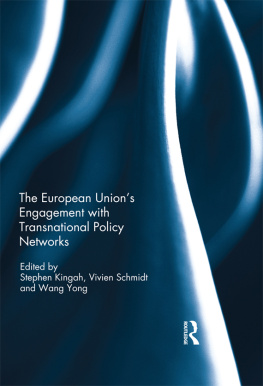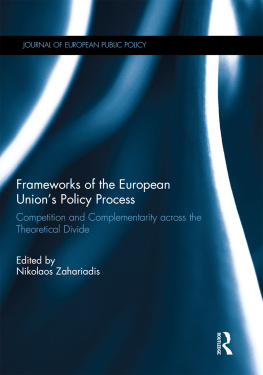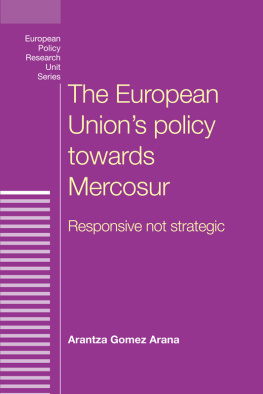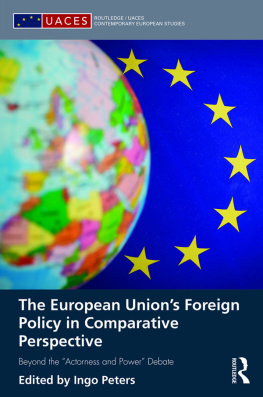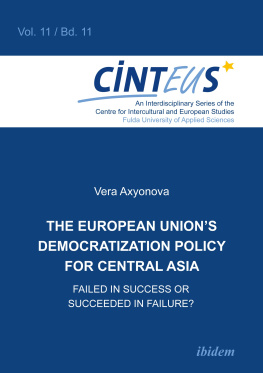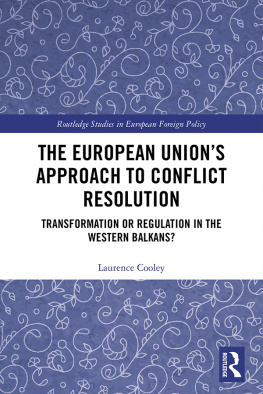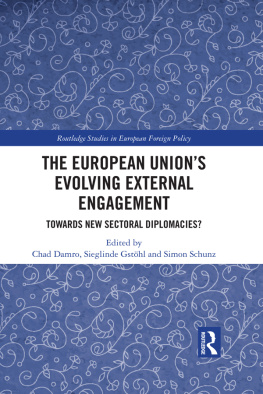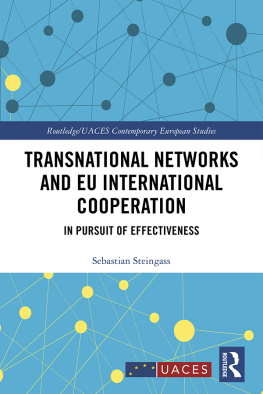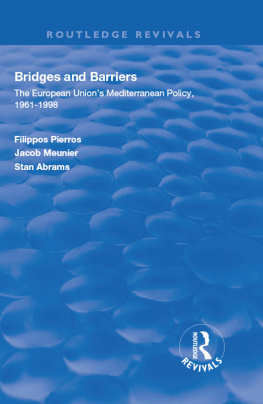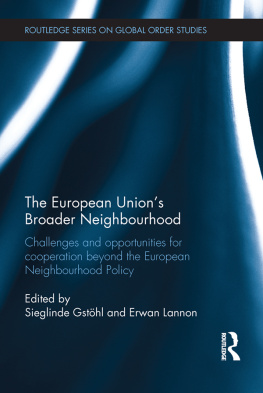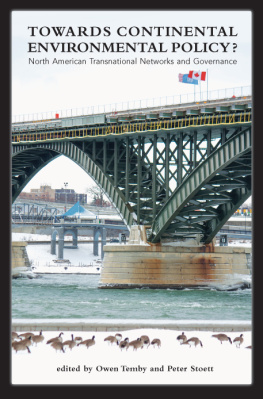The European Unions Engagement with Transnational Policy Networks
This book is the first of its kind to paint a comprehensive picture of the manner in which the European Union (the EU) interacts with transnational policy networks (TPNs). The TPNs covered are those in a variety of fields including conflict-prone natural resources, health, energy security, migration, human trafficking, combating of terrorism financing and climate change. The chapters are developed around six main lines of inquiry: modalities through which the EU influences TPNs around the world, TPNs influence of policy and decision making within the EU, conditions under which engagement between the TPNs and the EU may be regarded as successful, the identity and location of the TPNs and finally the added value or futility of a strategy developed in Brussels to weaken or fortify interactions with the networks studied. The importance of TPNs should be approached from the angle of the heightened attention now placed on informal modes of decision making. Increasingly, there is a sense that many international decisions are adopted and internalized through networks that can be efficient yet wanting in transparency. This book unveils complex debates on the inter-phase between inter-governmental/supranational entities like the EU, on the one hand, and networks, on the other. The appearance of this inter-phase matters not only for the EU but also for other such inter-governmental/supranational bodies as well as networks. This book was previously published as a special issue of Contemporary Politics.
Stephen Kingah is a Research Fellow, United Nations University Institute on Comparative Regional Integration Studies, Bruges, Belgium. He previously served as an ad hoc administrator in the European Union Commission. Recent publications include Access to Medicines and Vaccines in the South: Coherence of Rules and Policies Applied by the European Commission (2011) and Global and Regional leadership of BRICS Countries (2015).
Vivien Schmidt is a Jean Monnet Professor of European Integration, Founding Director of the Center for the Study of Europe, Director of the Center of International Relations and Professor of International Relations and Political Science, Boston University, MA, USA.
Wang Yong is a Professor at the School of International Studies and the Director of the Center for International Political Economy, Peking University, Beijing, China.
The European Unions Engagement with Transnational Policy Networks
Edited by
Stephen Kingah, Vivien Schmidt
and Wang Yong
First published 2016
by Routledge
2 Park Square, Milton Park, Abingdon, Oxon, OX14 4RN, UK
and by Routledge
711 Third Avenue, New York, NY 10017, USA
Routledge is an imprint of the Taylor & Francis Group, an informa business
2016 Taylor & Francis
All rights reserved. No part of this book may be reprinted or reproduced or utilised in any form or by any electronic, mechanical, or other means, now known or hereafter invented, including photocopying and recording, or in any information storage or retrieval system, without permission in writing from the publishers.
Trademark notice: Product or corporate names may be trademarks or registered trademarks, and are used only for identification and explanation without intent to infringe.
British Library Cataloguing in Publication Data
A catalogue record for this book is available from the British Library
ISBN 13: 978-1-138-64894-4
Typeset in TimesNewRomanPS
by diacriTech, Chennai
Publishers Note
The publisher accepts responsibility for any inconsistencies that may have arisen during the conversion of this book from journal articles to book chapters, namely the possible inclusion of journal terminology.
Disclaimer
Every effort has been made to contact copyright holders for their permission to reprint material in this book. The publishers would be grateful to hear from any copyright holder who is not here acknowledged and will undertake to rectify any errors or omissions in future editions of this book.
Contents
Stephen Kingah, Vivien Schmidt and Wang Yong
Raynold Wonder Alorse, W.R. Nadge Compaor and J. Andrew Grant
Vincent Rollet and Ana B. Amaya
Rafael Leal-Arcas, Juan Alemany Ros and Costantino Grasso
Alexandra-Maria Bocse
Daojiong Zha
Petra Mezzetti and Sebastiano Ceschi
Judeska L.M. Isenia and Stephen Kingah
Stephen Kingah and Marieke Zwartjes
Katja Biedenkopf
Yuliya Rashchupkina
The following chapters were originally published in Contemporary Politics, volume 21, issue 3 (September 2015). When citing this material, please use the original page numbering for each article, as follows:
Stephen Kingah, Vivien Schmidt and Wang Yong
Contemporary Politics, volume 21, issue 3 (September 2015) pp. 231244
Raynold Wonder Alorse, W.R. Nadge Compaor and J. Andrew Grant
Contemporary Politics, volume 21, issue 3 (September 2015) pp. 245257
Vincent Rollet and Ana B. Amaya
Contemporary Politics, volume 21, issue 3 (September 2015) pp. 258272
Rafael Leal-Arcas, Juan Alemany Ros and Costantino Grasso
Contemporary Politics, volume 21, issue 3 (September 2015) pp. 273293
Alexandra-Maria Bocse
Contemporary Politics, volume 21, issue 3 (September 2015) pp. 294307
Daojiong Zha
Contemporary Politics, volume 21, issue 3 (September 2015) pp. 308322
Petra Mezzetti and Sebastiano Ceschi
Contemporary Politics, volume 21, issue 3 (September 2015) pp. 323340
Stephen Kingah and Marieke Zwartjes
Contemporary Politics, volume 21, issue 3 (September 2015) pp. 341353
Yuliya Rashchupkina
Contemporary Politics, volume 21, issue 3 (September 2015) pp. 354366
are original material to this book and are to be referenced from this volume.
For any permission-related enquiries please visit:
http://www.tandfonline.com/page/help/permissions
Stephen Kingaha, Vivien Schmidtb,c,d,e,f and Wang Yongg,h
aUnited Nations University Institute on Comparative Regional Integration Studies, Bruges, Belgium; bCenter for European Integration, Boston, MA, USA; cCenter for the Study of Europe, Boston, MA, USA; dCenter for International Relations, Boston, MA, USA; eDepartment of International Relations, Boston University, Boston, MA, USA; fDepartment of Political Science, Boston University, Boston, MA, USA; gSchool of International Studies, Peking University, Beijing, Peoples Republic of China; hCenter for International Political Economy, Peking University, Beijing, Peoples Republic of China
This article serves as a tool to set the scene in this special issue on the manner in which the European Union (EU) engages transnational policy networks (TPNs). It paints a canvas of the main themes to be treated in articles that span a variety of thematic areas. Six main lines of inquiry are developed to better feed into the various themes covered by the specific articles. The lines of inquiry used include modalities or ways in which the EU influences TPNs around the world, TPNs influence of policy and decision-making within the EU, conditions under which engagement between the EU and TPNs can be considered successful, the identity and location of the TPNs, and the utility or otherwise of an EU strategy to weaken or strengthen engagement with TPNs.


